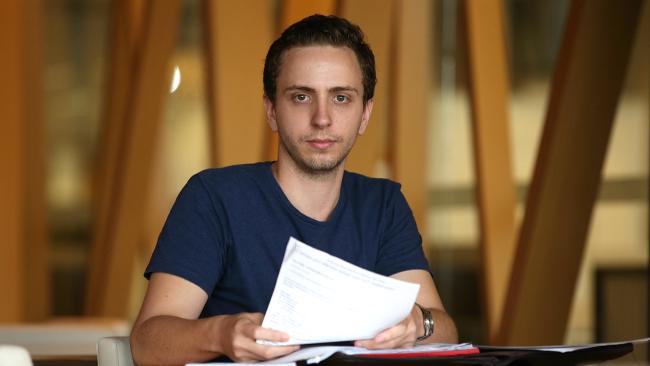I spent some time at QUT studying law. It was an interesting experience. I knew when one of the lecturers made the claim that the Blackstone contained the “rule of thumb” – a provision in law that men could beat their wives with a rod provided it was no thicker than a thumb – that theory was more important at QUT than reality. Blackstone of course says nothing of the sort, if anything highlighting the greater protection women have under English law.
So when I first read about this story almost two years ago, I was not surprised.
Two students entered a resource room. Several computers were free and they began to use one. They were confronted by a staff member who demanded to know if they were indigenous. They said they were not and she told them they would have to leave because that room was reserved for the use of indigenous students. They left without fuss, but later asked on Facebook how anyone expected segregation and racism to be overcome by a policy of segregating people and resources on the basis of race. Their posts were polite and intelligent.
The staff member concerned, Cindy Prior, made a complaint that their comments constituted racial vilification. She has been so traumatised she has been unable to work for the last two years.
Just to repeat. A staff member throws two students out of a resource room because they are the wrong race, and when they ask questions about this, they are accused of racial vilification. This is 18C. It is worth noting that the only reason this particular case has come to public attention is the the students have persisted in asking their questions, and in denying that they acted with any racial animosity. The vast majority of cases are “settled” in a Kafkaesque and labyrinthine system without any possibility of public scrutiny.
Now read on, from The Australian:
Two students accused the Human Rights Commission yesterday of “recklessly” breaching their human rights in a row stemming from a $250,000 damages claim brought by a worker who barred white students from a room at the Queensland University of Technology.
Jackson Powell and Calum Thwaites, who lodged separate complaints with the commission, are seeking a formal apology and compensation for their costs in defending racial hatred claims.

QUT student Calum Thwaites prepares to defend himself against claims of racial vilification.
They say the commission has treated them with “flagrant indifference” because they are “white Anglo-Saxon heterosexual citizens who maintain a male gender identity”, have no criminal record, no outspoken political opinions and no record of participation in trade unions or religious sects.
Their lawyer, Tony Morris QC, said the commission’s conduct in managing the case had been “illogical, irrational and patently bizarre”, leading to gross unfairness to Mr Powell, Mr Thwaites and other students.
…
The students say their rights were infringed because the commission failed for at least 14 months to notify them they were being accused of racial vilification under section 18c.
The delay meant that while QUT, its staff and its lawyers had 14 months to prepare a defence to the claims by QUT staffer Cindy Prior, Mr Thwaites was told of the serious complaint days before he was told to go to a conciliation conference ordered and run by the commission. He had no funds and little time to get legal advice or achieve a resolution before the case escalated to the Federal Circuit Court.
The racial vilification case was lodged in the commission in late May 2014 by Ms Prior, who alleges she was severely traumatised by Facebook posts from students responding to her action in preventing the men using QUT’s Oodgeroo Unit in May 2013.
The unit has been described as a “culturally safe space” for indigenous students, but there was no sign suggesting it was off-limits to white students who wanted to access computers that were not in use.
Ms Prior has been unable to work for 2½ years and wants $250,000 from QUT and the students.



Leave a Reply